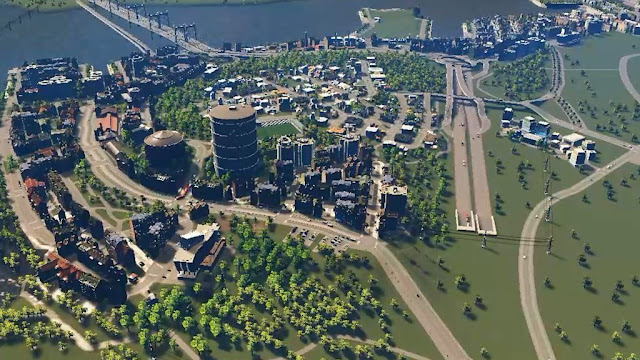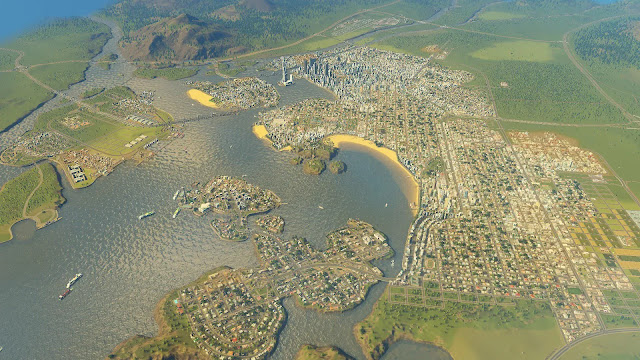- Start small: Starting with a small city is the best way to gain experience and learn the game mechanics. You can gradually expand your city as you become more familiar with the game, and avoid becoming overwhelmed.
My take on gaming, short science fiction film, RPGs and anything & everything remotely geeky!
Sunday, January 29, 2023
Top 10 Tips & Tricks on starting a new city in Cities: Skylines!
Saturday, January 28, 2023
The Making of Tron: Legacy (2010)
Friday, January 27, 2023
New "Cities: Skylines" post series!
I am excited to announce the start of a new post series dedicated to Cities: Skylines, in which I've invested almost 500 hours in the last few years. In this series, I will be sharing video tutorials from some of the best players in the community.
For those who don't know, Cities: Skylines is a modern take on the classic city-building game genre, where players are tasked with creating and managing their own virtual cities. The game offers a wide range of features, including zoning, transportation, public services, and more. With its complex and in-depth gameplay, Cities: Skylines has quickly become a favorite among players, both new and experienced. It's been a sort of addictive - almost meditative - experience for me.
Tuesday, January 17, 2023
HBO's "The Last Of Us" is absolutely brilliant!
Monday, January 02, 2023
Avatar: Rewatching the original
Just finished rewatching Avatar with the whole family in preparation for tomorrow's first IMAX viewing of Avatar: The Way of Water. This should be fun.
-
Earlier this week I cleaned up the EVE Blog Pack, removing outdated blogs and adding a fresh new set of prolific EVE Online bloggers. In do...
-
Last Update: March 16th, 2011 --- Recently Added: 11 --- Recently Removed: 0 I thought I'd also add the blogs of fellow EVE player...
-
Welcome to another special installment of the EVE Blog Banter , the monthly EVE Online blogging extravaganza created by myself, CrazyKi...


